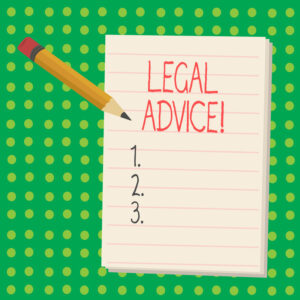
While privilege review may very well be the most expensive component of discovery review, preparing a privilege log is likely the most daunting task performed in discovery review. There is just no way in getting around creating a log if you want to protect privileged communications. And there is no use in rushing through the process. A hastily crafted privilege log could expose you to the possibility of protracted discovery disputes and even waiver of privilege. There are, however, ways to make privilege logging less complicated, expensive, and risky.
Be Methodical
As any attorney knows, when you claim privilege for any document, you take up the responsibility to provide sufficient information justifying that privilege indeed applies. FRCP Rule 26(b)(5) specifically requires that for any information being withheld from discovery as privileged, parties must expressly make the claim of this privilege, while also describing the nature of the documents that will not be produced.
In practice, this means creating a privilege log containing information for each document withheld including corresponding date, author, recipients, document description, general subject matter, attorneys involved, and what type of privilege is being asserted. Being consistent and methodical in your description of privileged documents, individually and as a set, is key to developing a defensible privilege log. If you’d like to learn how to automate the privilege log creation process, check out “Automate to Accelerate: Streamline Privilege Workflows with H5 Matter Analytics®,” presented by H5 in partnership with Oasis Discovery.
Be Savvy
It all sounds straightforward enough at first, but once the set of documents you are claiming privilege for begins to number in the thousands or tens of thousands, a whole new complexity is introduced. Ensuring that names and email addresses (of attorneys and other key players) are formatted and categorized consistently across the log quickly becomes a major headache, for example.
Additionally, being able to scale the generation of document descriptions across all logged documents can become its own logistical project to manage and oversee. Luckily, setting up a standardized workflow with technology aids like name normalization can allow you to automatically populate elements of a privilege log from your review platform with already available document metadata. This can give you a leg up and help to avoid classic pitfalls and inconsistencies in privilege log development.
Be Specific
Although technology can help with the heavy lifting, it’s really human finesse and detail-orientation that helps to ensure that you are providing sufficient factsemonstrate the privileged nature of withheld information. For attorney-client privilege, being specific about the legal advice that is being requested, provided or discussed is important. For work-product privilege, clarify that the document was prepared in anticipation of litigation. Automation really helps, of course, but you need a solid process and a well-trained and well-coordinated team to get you to the finish line.
Be Cooperative
Also, cooperation with opposing early on regarding privilege log requirements goes a long way to paving a smooth road to the finish. If you can arrive at an agreement on key questionsike whether email threads can be logged as a single entries, or even more global questions like whether a categorical privilege log (rather than a document-by-document log) will suffice given the characteristics of the case and document population, life will be a whole lot easier. Additionally, since jurisdictions differ on specific privilege log rules, it’s important to consult on local rules to ensure you are in alignment with requirements.
The key to successful privilege logging is being deliberate about the process you set-up and implement, and specific about the tools and resources you are integrating into it. As with so many things in life, preparation is key. Privilege logging isn’t really a task you can jump into and figure out as you go along. If you plan your privilege logging at the start of the review, you may find that you’ll have some well-deserved breathing room at the end, when you may really need it.

